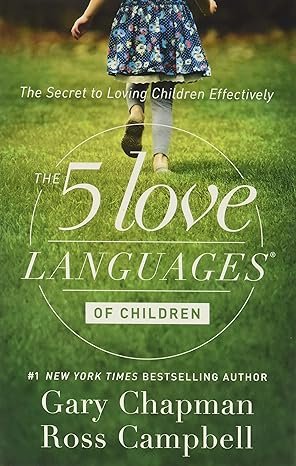The 5 Love Languages of Kids for Parents and Therapists
In a recent podcast episode titled, "Understanding a Child’s Love Language to Connect Deeper as Parents and Therapists," Kim and Mary explore the impact of the five love languages - physical touch, words of affirmation, quality time, gifts, and acts of service - on a child's motivation and connection in play and therapy. These thoughts and ideas are based on the insights from the book on the same subject by Gary Chapman and Ross Campbell.
The love languages are essentially different ways children express and receive love. They are a child's preferred method of interaction, dictating how they connect with others and perceive love. Understanding these languages allows parents and providers to respond in a way that fosters a deeper bond and accelerates the child's learning and development.
For your physical touch kids, they will respond positively to hugs, high-fives, or any form of physical contact. Sensory play and movement activities are great motivators in play and therapy.
With words of affirmation, these children thrive on positive verbal reinforcement, relishing in praises and compliments. For them, words hold great power and value. In the therapy setting, specific affirmations like “you said your sound so great,“ or “I love how you pulled your lips forward for that ‘sh’ sound” helps encourage them in a way that they receive it well, along with offering specific verbal feedback that shapes their practice of goals.
Quality time is another love language. Children who prefer this language seek one-on-one time with their parents or caregivers. They cherish undivided attention and enjoy shared activities. These kids are usually pretty easy to motivate in a therapy setting! Games and any type of activity together are good choices.
The fourth love language is gifts. These children feel loved when they receive tangible expressions of love. However, it's not about materialism, but the thought and effort behind the gift that counts. If you have a prize box or stickers in therapy, this might be the kiddo you want to bring it out with!
Finally, they talked about acts of service. Children with this love language appreciate when things are done for them. This could range from helping with homework to cooking a meal together. These kids often enjoy pretend play activities like restaurant, doctor, or school and are great ideas to try and incorporate into a therapy session if you have this type of child.
The ability to identify a child's individual love language really helps to devise an effective therapy plan, along with understanding a child's emotional needs to further their learning.
This podcast episode is definitely a reminder that every child is unique, and understanding their love language is a powerful tool for connection. Whether you're a parent or a therapist, the wisdom shared in this book can revolutionize your approach towards child development and therapy.

